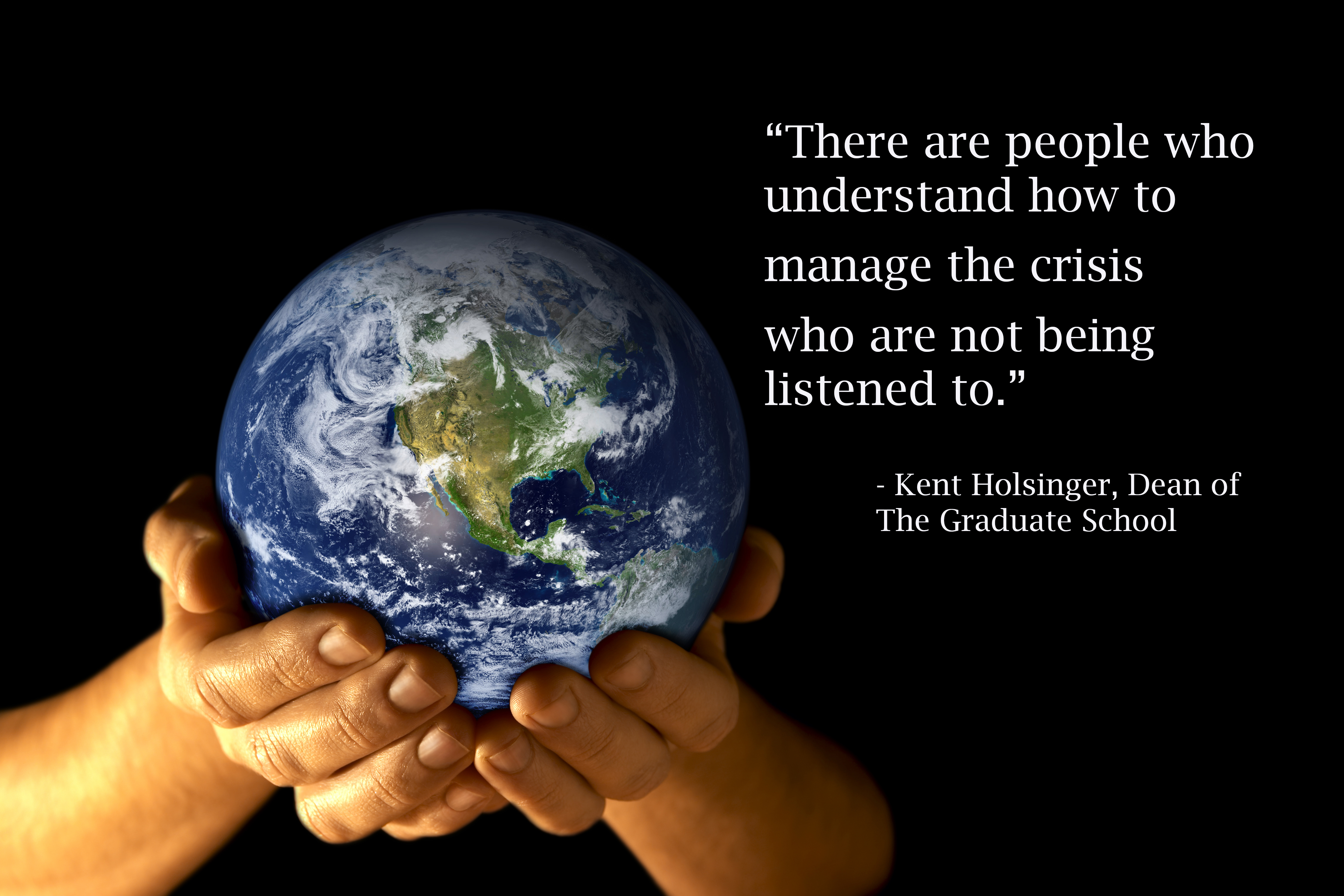Presidents – past and present — of the American Institute of Biological Sciences (AIBS), including three UConn Department of Ecology and Evolutionary Biology professors, have written a call to action published in BioScience emphasizing the importance of science in sound policymaking as a necessary means to navigate through existential threats like the COVID-19 pandemic.
Distinguished Research Professor in the Department of Ecology and Evolutionary Biology, and Emeritus at the Cary Institute of Ecosystem Studies Gene Likens; Professor Emeritus Greg Anderson; and Professor, Vice Provost for Graduate Education, and Dean of The Graduate School Kent Holsinger, are among the authors who penned the call to action in response to doubts cast on science by politicians and others.
“Part of the reason the letter came together was the sense that, with the pandemic, things are happening and there are people who understand how to manage the crisis who are not being listened to,” says Holsinger.
The authors emphasize that science provides us with a greater understanding of the world around us and the tools needed for informed decision-making. However, due to the spread of misinformation and self-interested motivations, we are entering dangerous territory, they say. Anderson notes that working against doubt is especially challenging when the general public wants absolutes.
“Researchers will say, for example, there is a chance that ‘x’ outcome will happen. Researchers will not say that ‘x’ outcome will absolutely happen. Scientists would say, ‘We need more evidence.’ Scientists can also change their minds as new evidence comes to light. The doubters use this to seed disbelief when in fact this is how the scientific process works.”
Though science will not give step-by-step instructions for policymakers, the data act as a lighthouse to guide and provide warning.
“Together, we wanted to say ‘listen to the scientists.’ We won’t tell you the answer, we will tell you how to get to the answer by using scientific methods,” says Anderson.
Anderson and Holsinger also point to the dismissal of scientists as ‘elites.’ Just as you depend on a skilled mechanic to tune up your car, it is important to depend on experts to guide society through an existential crisis, they say.
A good example of science informing policymaking cited by the authors is Likens’ research on acid rain, which resulted in the Clean Air Act Amendments of 1990. Continuous and long-term monitoring of precipitation chemistry, and policies made to reduce emissions, resulted in the reduction of acid rain. Likens says this example of scientifically-informed legislation offers a template for similar efforts.
The cause was identified, communicated, and acknowledged. The science was consulted, policies were enacted, and the positive outcome was clear. The authors say that successful model for crisis mitigation is not being followed with COVID-19; rather, seeds of doubt are everywhere.
Holsinger says that outright denial of facts and evidence is all too familiar, citing decades of industry denial over the cancer-causing effects of tobacco products, the climate crisis, and others.
“What this letter is really intended to try to highlight is the importance of paying attention to scientific evidence when making public policy, but it is also an example of a much broader issue in general that we should pay attention to evidence and reason rather than just going with your gut,” he says.
Read the full call to action in BioScience.



